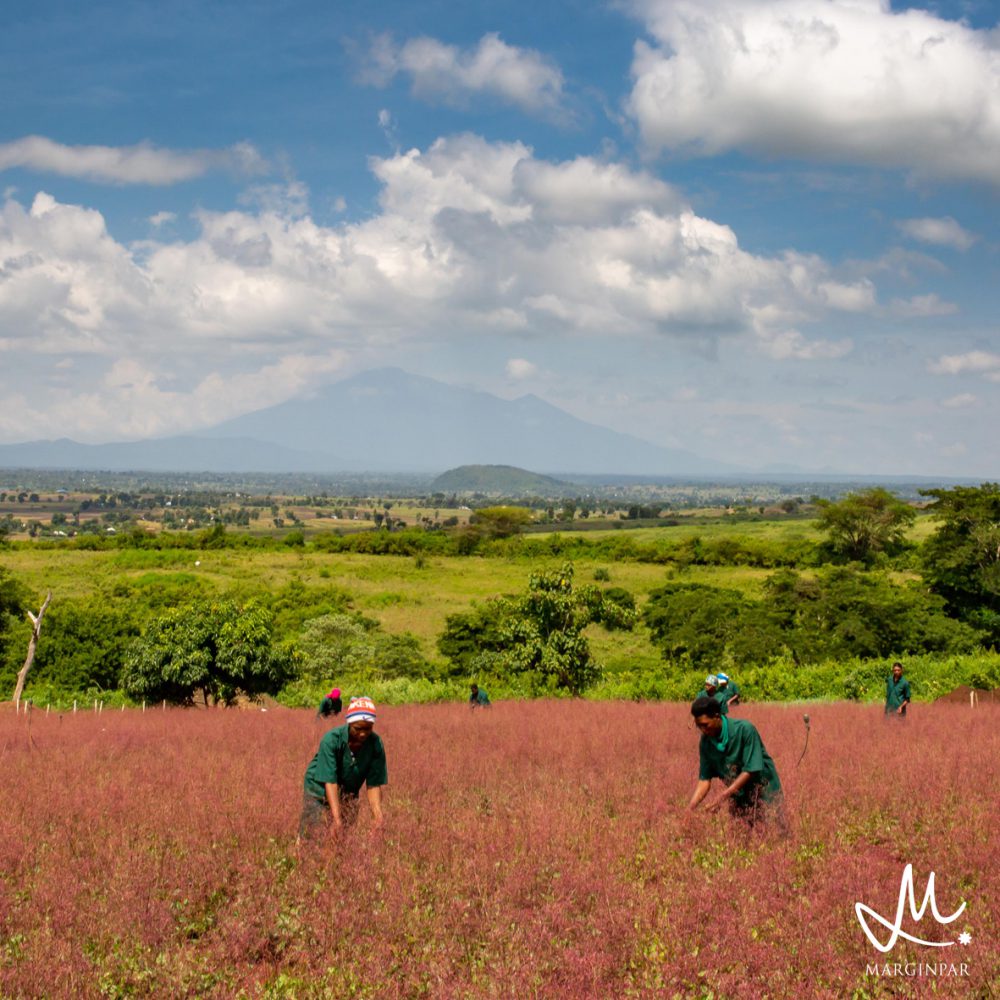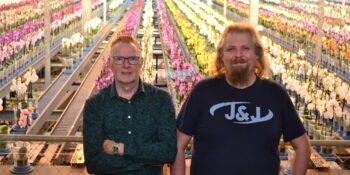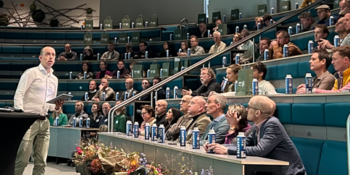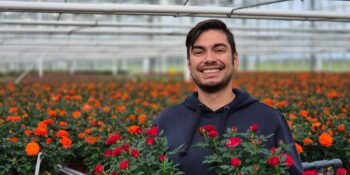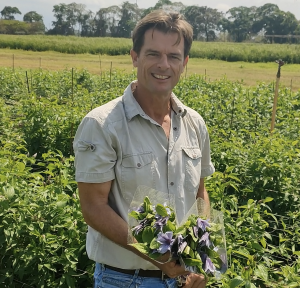
Wiebe Berkhout, manager Marginpar in Tanzania
Nestled in the foothills of Mount Kilimanjaro, Tanzania, you’ll find three nurseries: Bondeni Flowers (which includes Bondeni Main and Bondeni Machame) and Michiru. All three nurseries obtained their first certification in the past month, which happens to be the highest level that can be attained: MPS-A+. How did they manage to pull this off?
In addition to Bondeni Flowers and Michiru, there is one other Tanzanian-based nursery that is currently MPS-A+-certified. This means that their nurseries, compared to other breeders growing the same types of crops and with similar cultivation conditions, use sustainable production practices for their crop protection agents, fertilizers, and power and water consumption. Growers’ level of certification tells them how they are performing in these four areas compared to peer growers, and they can choose the more sustainable alternative available in, for example, crop protection agents. This means that MPS-ABC does not only record data on usage and consumption – it also helps to incrementally improve the production process.
Responsible practices
Bondeni Flowers and Michiru are both partner nurseries of Netherlands-based Marginpar, which is responsible for distribution. ‘It’s no coincidence that we were awarded an MPS-A+ certificate right off the bat – we make a point of using agents that are classified by MPS-ABC as less harmful to the environment. We use mostly use products classified as “green,” and restrict our use of “orange” agents. This means we’re guided by MPS-ABC in choosing crop protection agents,’ says Wiebe Berkhout, a manager at Marginpar in Tanzania. ‘Additionally, we stopped using neonicotinoids to the extent possible, because they’re potentially deadly to bees, and we’re also growing flowers specifically to attract bees. We’re pleased to say this has brought thousands of bees to the nursery, which helps improve the ecosystem. Our eventual goal is to set up a beehive and start keeping bees of our own.’
As Marginpar’s partner nurseries, we have committed to FSI 2025. Bondeni Flowers and Michiru are in the process of obtaining their MPS-GAP and MPS-SQ certificates in addition to their MPS-ABC qualification. Berkhout: ‘We feel it’s important to show that we grow the flowers using environmentally friendly and socially responsible practices. That’s how we can demonstrate we’re responsible growers who treat our people and the natural environment with respect.’ Having arrived in Tanzania as an aid worker way back in 1994, Berkhout made the switch to the corporate sector three years later.
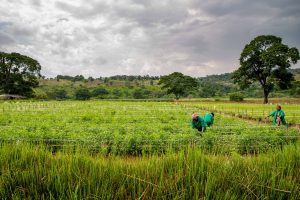
Neem three
The nurseries in the Kilimanjaro foothills employ around 900 people combined. Bondeni Flowers and Michiru both specialise in growing cut clematis, which thrive in this part of the world due to the high daytime and night-time temperatures. The mountain location is another plus. There’s also an abundance of water in the vicinity, with the Pangani River flowing from Mount Kilimanjaro into the Indian Ocean. The nurseries are restricted to using a fixed number of cubic metres of water an hour, which is monitored by the Pangani River Basin Board. Berkhout: ‘We harvest water used in the nursery and pump it into a well, then filter out any polluting agents before it’s released back into the soil.’
That’s how we can demonstrate we’re responsible growers who treat our people and the natural environment with respect
If it were up to Berkhout, his nursery would also start using organic pesticides – after all, why would you use chemicals when you can go organic? Berkhout: “But unfortunately, it’s still too difficult at this point to use exclusively organic crop protection, because it’s hard to obtain the permit needed to import the insects. However, we do use other organic agents, such as neem.’ This is a medicinal herb sourced from neem trees – tropical trees native to West Africa – that has antifungal properties and also protects crops against common red spider mites and regular mites.
Berkhout is full of ideas for the future, with LED lighting, solar panels and organic pesticides all being high on the list. But his most unusual goal may be implementing the Kaizen philosophy at his nursery. ‘Kaizen is a Japanese management strategy in which trust plays a big role and where employees are given more responsibilities and are asked to provide input on processes,’ Berkhout explains. ‘They’re encouraged to reflect on the work they’ve done and how this might be improved. It’s a good way of learning from your mistakes and also helps create less hierarchical, more democratic organisations – which ultimately only makes the work you do more fun and interesting.’
